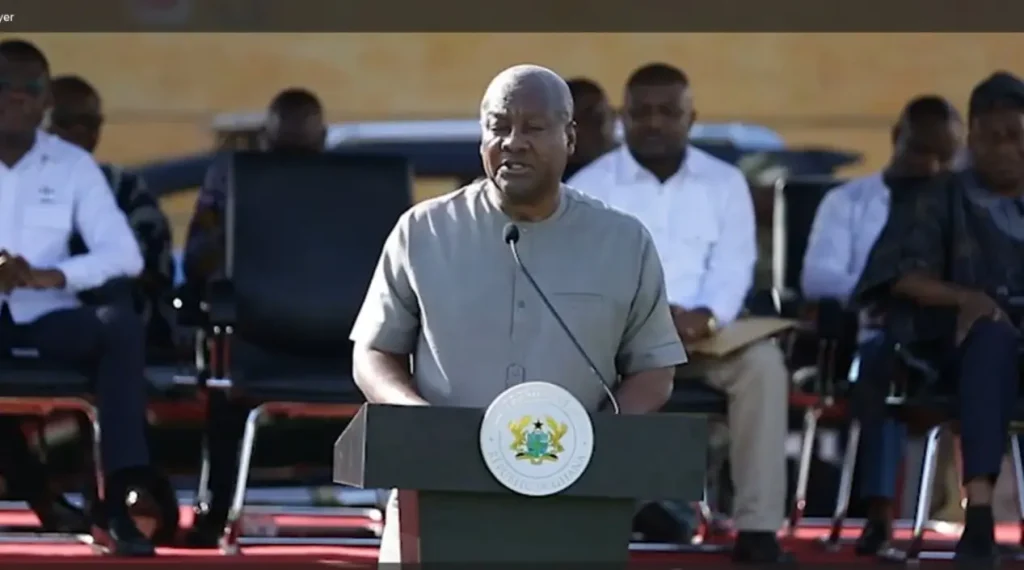President John Dramani Mahama’s “Big Push” infrastructure program represents a significant commitment to modernizing Ghana’s transportation network and stimulating economic growth. The ambitious plan allocates a substantial 14 billion Ghana cedis to address critical infrastructure gaps across the country, with a primary focus on improving road connectivity. This initiative aims to not only facilitate trade and transport but also enhance access to essential services like healthcare and education, ultimately contributing to a more interconnected and prosperous Ghana. The President emphasized that funding has been secured and disbursement mechanisms are in place to ensure timely payments to contractors, thereby minimizing delays and ensuring the efficient execution of projects.
A core component of the Big Push program is the comprehensive upgrade of major highways. The plan includes the dualization of key arterial roads connecting Accra to Kumasi, Takoradi, and Aflao. These upgrades are designed to reduce travel times, improve road safety, and enhance the efficiency of goods and passenger movement. Furthermore, the construction of a new expressway between Accra and Kumasi, Ghana’s two largest cities, promises to drastically reduce travel time to approximately two and a half hours, fostering stronger economic linkages and promoting regional integration. This expressway signifies a substantial investment in modern infrastructure and underscores the government’s commitment to creating a more efficient and integrated transportation system.
Beyond the major highways, the Big Push extends its reach to address crucial bridge infrastructure. The program targets both new construction and rehabilitation projects, encompassing the Dambai Bridge, Kyeiamanfrom Bridge, and the rehabilitation of the Buipe, Daboya, and Yapei Bridges. These interventions are designed to improve river crossings, enhance transportation reliability, and facilitate the movement of goods and people, particularly in areas where existing infrastructure is outdated or inadequate. These projects will not only improve transportation but also contribute to overall safety and resilience within the transportation network.
Recognizing the specific needs of the Upper West Region, President Mahama has pledged targeted investments to improve road conditions and connectivity. This includes prioritizing the Wa-Tumu-Bolgatanga Trunk Road and the Techiman-Wenchi-Bole-Wa-Hamile Corridor, both vital for regional integration and economic development. Additionally, sections of the Sawla-Fufulso Road will be resurfaced to improve connectivity with the Savannah and Northern regions, further enhancing trade and transportation links. These improvements are expected to stimulate cross-border business and revitalize economic activity in the region, improving access to markets and opportunities for local communities.
The President also emphasized the program’s commitment to improving access in remote areas within the Upper West Region. Upgrades are planned for roads in the Wa-East, Nadowli, Fema-Buse-Issa, and Sisala-East districts. These upgrades aim to improve access to markets, schools, and healthcare facilities, contributing to improved quality of life and increased opportunities for residents in these often-underserved areas. By improving road infrastructure, the government aims to bridge the gap between urban and rural areas, ensuring equitable access to essential services and fostering inclusive development.
The Big Push program is not merely a collection of infrastructure projects; it represents a comprehensive strategy for national development. By investing heavily in transportation infrastructure, President Mahama’s administration aims to stimulate economic growth, create jobs, and improve the lives of Ghanaians across the country. The commitment to timely payments for contractors, coupled with the dedicated allocation of funds, demonstrates a strong resolve to ensure the efficient and effective implementation of the program. Ultimately, the Big Push signifies a significant step towards a more connected, prosperous, and equitable Ghana. The program’s success will likely be measured not only by the completion of infrastructure projects but also by the tangible improvements in the lives of citizens and the overall economic advancement of the nation.


